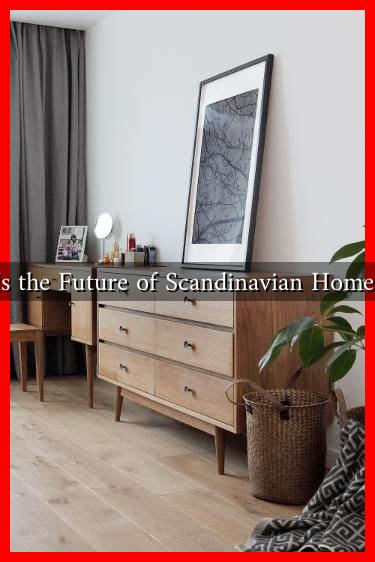-
Table of Contents
- What Is the Future of Scandinavian Home Decor?
- The Core Principles of Scandinavian Design
- Emerging Trends in Scandinavian Home Decor
- 1. Sustainable Design
- 2. Biophilic Design
- 3. Smart Home Integration
- Case Studies: Brands Leading the Way
- 1. Muuto
- 2. HAY
- Conclusion: Embracing Change While Honoring Tradition
What Is the Future of Scandinavian Home Decor?
Scandinavian home decor has long been celebrated for its minimalist aesthetic, functionality, and connection to nature. As we move further into the 21st century, the evolution of this design style is influenced by various factors, including sustainability, technology, and changing consumer preferences. This article explores the future of Scandinavian home decor, highlighting emerging trends, innovative materials, and the enduring principles that define this beloved style.
The Core Principles of Scandinavian Design
Before delving into future trends, it’s essential to understand the foundational elements of Scandinavian design. These principles include:
- Minimalism: A focus on simplicity and decluttered spaces.
- Functionality: Every piece of furniture serves a purpose, often with multi-functional designs.
- Natural Materials: Wood, stone, and textiles are commonly used to create a warm and inviting atmosphere.
- Light and Space: Maximizing natural light and creating open spaces are key components.
Emerging Trends in Scandinavian Home Decor
As we look to the future, several trends are shaping the evolution of Scandinavian home decor:
1. Sustainable Design
With growing awareness of environmental issues, sustainability is becoming a cornerstone of Scandinavian design. Brands are increasingly focusing on eco-friendly materials and production methods. For instance, companies like IKEA are committing to using only renewable or recycled materials by 2030. This shift not only appeals to environmentally conscious consumers but also aligns with the Scandinavian ethos of harmony with nature.
2. Biophilic Design
Biophilic design emphasizes the connection between humans and nature. In Scandinavian decor, this translates to incorporating natural elements into interiors. Expect to see:
- Indoor plants and green walls
- Natural light maximization through large windows
- Earthy color palettes inspired by the outdoors
Research indicates that biophilic design can improve well-being and productivity, making it a compelling choice for future homes.
3. Smart Home Integration
As technology advances, smart home features are becoming more integrated into Scandinavian design. This includes:
- Smart lighting systems that adjust based on natural light
- Automated temperature controls for energy efficiency
- Voice-activated devices that blend seamlessly with minimalist aesthetics
These innovations not only enhance convenience but also align with the Scandinavian focus on functionality.
Case Studies: Brands Leading the Way
Several brands are at the forefront of these trends, showcasing how Scandinavian design is evolving:
1. Muuto
Muuto is known for its modern take on traditional Scandinavian design. The brand emphasizes sustainable materials and innovative designs, such as their Fiber Chair, made from recycled plastic and wood fibers. This commitment to sustainability and functionality exemplifies the future direction of Scandinavian decor.
2. HAY
HAY combines contemporary design with traditional craftsmanship. Their products often feature bold colors and geometric shapes, appealing to a younger demographic while maintaining the core principles of Scandinavian design. HAY’s approach demonstrates how the style can adapt to modern tastes without losing its essence.
Conclusion: Embracing Change While Honoring Tradition
The future of Scandinavian home decor is bright, characterized by a commitment to sustainability, a deepening connection to nature, and the integration of technology. As consumers become more conscious of their choices, brands that prioritize eco-friendly practices and innovative designs will thrive. While the core principles of Scandinavian design remain intact, the style is evolving to meet the needs of a changing world.
In summary, the future of Scandinavian home decor will likely be defined by:
- A strong emphasis on sustainability and eco-friendly materials
- The incorporation of biophilic elements to enhance well-being
- The seamless integration of smart technology into everyday living
As we embrace these changes, Scandinavian design will continue to inspire and resonate with those seeking beauty, functionality, and a connection to the natural world.


